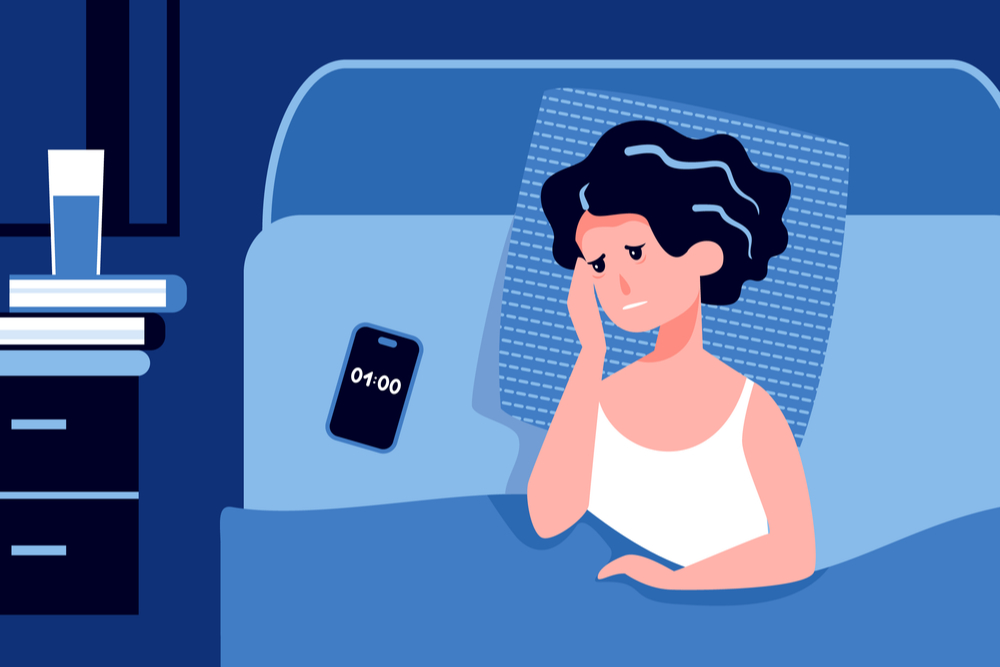Memory restoration might be the leading theory in regards to the neurobiological function of dreams. Another popular hypothesis suggests the process has more to do with helping us makes sense of complex emotions and or traumatic experiences. Whatever the final word ends up being, it’ll likely say the same about the role of nightmares, even if there is some evidence that motions a slight chemical distinction between the two. If the bulk of dreams are abstract, sometimes profound, sometimes incoherent, adaptations of actual memories and interactions, nightmares must be distressful animations of the same. It stands to reason that after childhood unpleasant mind movies pertain to work for the average American—the set wherein a considerable portion of our footage is obtained.
Filing sheep
The experts over at Healthy Sleep interviewed over 1,000 employed Americans about their work-related dreams. Fifty-six percent of the sample identified as female and 44% identified as male. They ranged in age from 19 to 81 with an average age of 37 and a standard deviation of 11.
The average US worker spends just about 90,000 hours at their job over the course of a lifetime. We could very easy lengthen this figure if we include all of the laborers that are unable to divorce their priorities from their work after they punch out. Four in five people surveyed in Healthy Sleep’s report said that they habitually experience dreams about their job, with slightly more women evidencing the trend compared to men (80.8% versus 77.6%, respectively).
A similar disparity was observed between non-remote workers and employees that primarily work from home. In fact, the more responsibilities, the more frequent the tendency: 66.1% of entry-level workers routinely dreamed about work, 81.7% of intermediate workers said the same, followed by first-level management (80.8%), and mid to senior-level management (83.4%.) The authors add,
“Women aged 35 and older with mid- to senior-level management roles were the most likely candidates to have work-related dreams, although the majority of employees overall did dream about the workplace. As someone takes on leadership roles, they are likely to think and dream about work more often. This is supported by our data’s findings that entry-level workers dreamed about work 13 percentage points less than the survey average. Entry-level workers have yet to fully embrace their job position, and their identities are less influenced by their roles. As someone rises in the ranks at a company, they tend to attach their identity to their place of employment, possibly inducing a subconscious comfortability in that environment.”
The authors soon discovered that negative dreams outweighed positive ones by a pretty sizable margin. Thirty-five percent of the study pool had nightmares about making a mistake at work, 30% dreamed that they were egregiously late, 29.3% dreamed about being unprepared, 21% dreamed about missing a deadline, and an additional 15% dreamed about getting fired. Strangely, commissioned-based employees reported the least instances of work-related nightmares. Moreover, low to middle-income earners seemed to have them the most often, specifically those that pulled in between $25, 000 and $49,999 a year. Fifty-seven percent of blue-collar workers and 58% of white-collar workers also reported a higher degree of work-related nightmares.
Not so sweet dreams
The authors of the study wrote, “Over half of the people surveyed had experienced a work-related nightmare, a staggering number when we consider what a nightmare can do to the psyche. Nightmares can be debilitating and more memorable than positive dreams. This issue even effects on workers with little or no stress at work— over 46% of low-stress (or stress-free) workers said they had experienced work-related nightmares.”
Not all of the dream terrors occasioned where imagined, a fair share of respondents reported consistently having nightmares about awful job-related experiences that actually happened. Recent layoffs appeared to energize the majority of bad dreams, though feeling undervalued didn’t trail too far behind.
This article was originally published on The Ladders.
Sign up to receive daily news, inspiration, and advice on how to master work and life from Ladders.
Follow us here and subscribe here for all the latest news on how you can keep Thriving.
Stay up to date or catch-up on all our podcasts with Arianna Huffington here.


